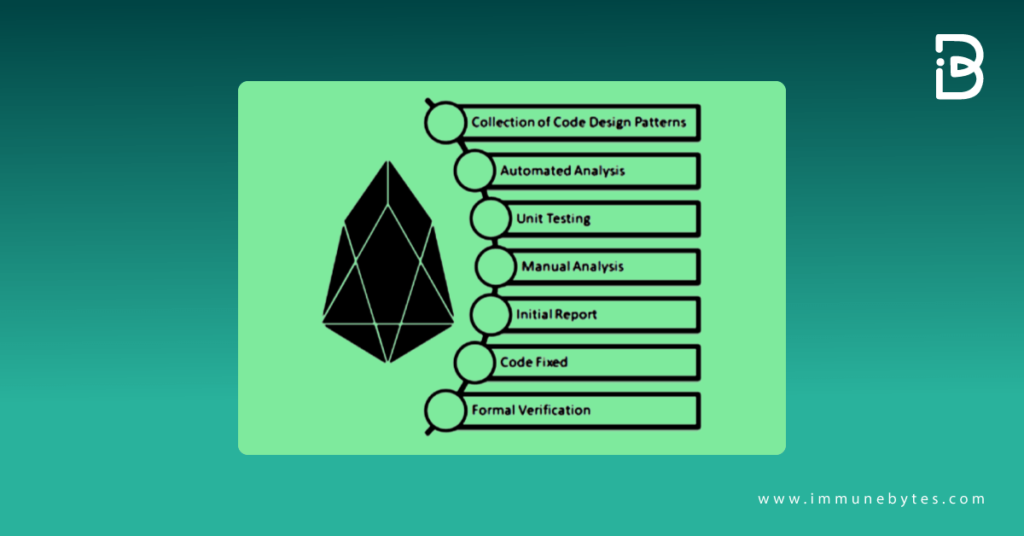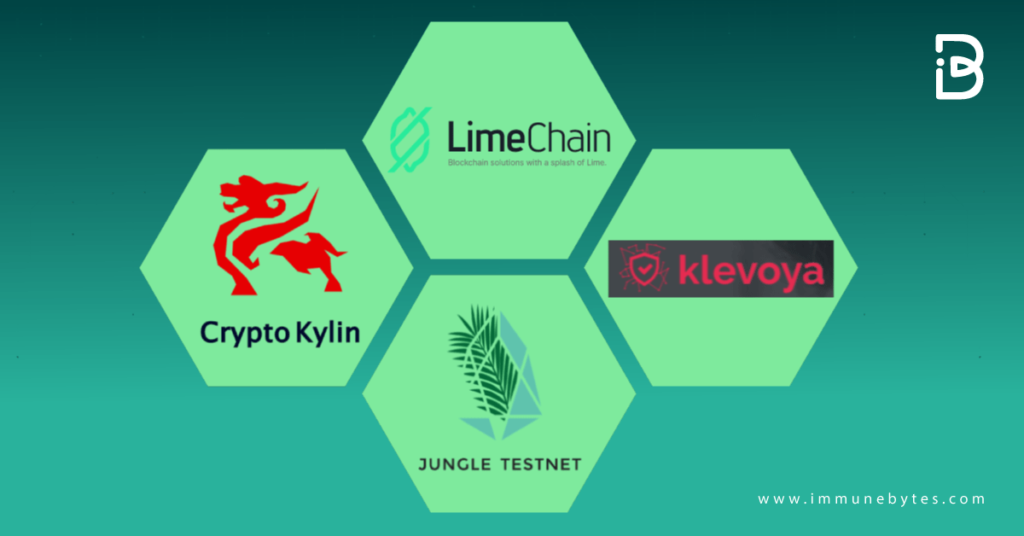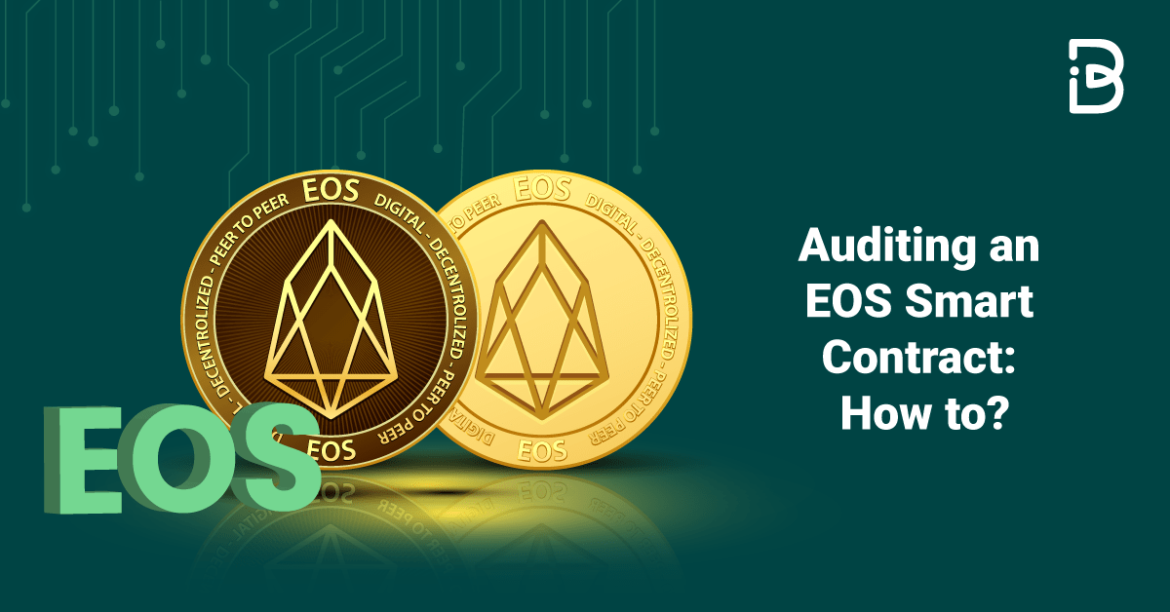EOS platform has acclaimed its position in the crypto-sphere by creating much hype by offering a high transaction rate and providing an operating system-like architecture for the management of decentralized resources.
However, the platform is still in its early stages and the tools, technologies, and practices around developing EOS smart contracts have yet to mature. Consequently, as newer bugs and security vulnerabilities are discovered and new features are developed, the security threats it faces are constantly and rapidly changing.
An EOS Smart Contract audit identifies and prevents the deployment of security vulnerabilities that may cause any harm to blockchain projects. Both business case logic and security point of view should be considered in the auditing process. Having a unique design and its choice of language (C++) makes the auditing process fundamentally different from other popular platforms. At ImmuneBytes, we use automated analysis as well as manual security review of the code.
Why EOS?
EOS offers better scalability than any other platform, surely it has experienced its share of criticism. Nonetheless, the performance offered by it surpasses any other. Let’s take a look at some of the features of EOS:
- Free Transactions
EOS blockchain does not require any fee for the transaction; however, to use Bandwidth, Computation & Storage, a sender needs to pay EOS tokens.
- Smart Contracts
Smart Contracts in EOS uses Web Assembly(WASM) for their compilation which is supported by different languages like Rust, Python, and Solidity. EOS uses C++ for its Smart Contract development as it gives high performance and security.
- Performance
EOS can attain thousands of transactions per second, having the potential to scale further. EOS-based applications also offer a better user experience.
- Easy Upgrades and Bug Recovery
EOS platform is robust enough to fix bugs as it enables the block producers to replace the account’s code without having to hard fork the entire blockchain.
- Plugins
EOS supports plugins to help in keeping the blockchain data synchronized with another system. Moreover, plugins allow easy access to the blockchain using REST API, RPC, and push data to a Mongo DB, a wallet plugin.
How to Audit an EOS Smart Contract?
Like other frameworks, smart contracts written on EOS need to be audited before going live on the mainnet. Fatal bugs in the contract can get exploited when the contracts are not battle-tested enough.
The methodology followed while auditing an EOS smart contract is pretty simple and hassle-free. We have curated a set of steps that can be easily followed while performing the audit.

EOS Vulnerability Detection Tools
There are many dynamic testing tools present for detecting vulnerabilities in EOS smart contracts. We have chosen some of them and listed them here for your reference.

These are some of the most commonly used auditing tools used by auditors to audit EOS smart contracts. Although you do need to check the applicability of each according to your use.
Professionals at ImmuneBytes understand that inefficiencies and security flaws in deployed smart contracts can be costly. Our team makes sure to identify threats at every step to offer a higher level of security.
To get an audit for your EOS smart contract, contact us today.

